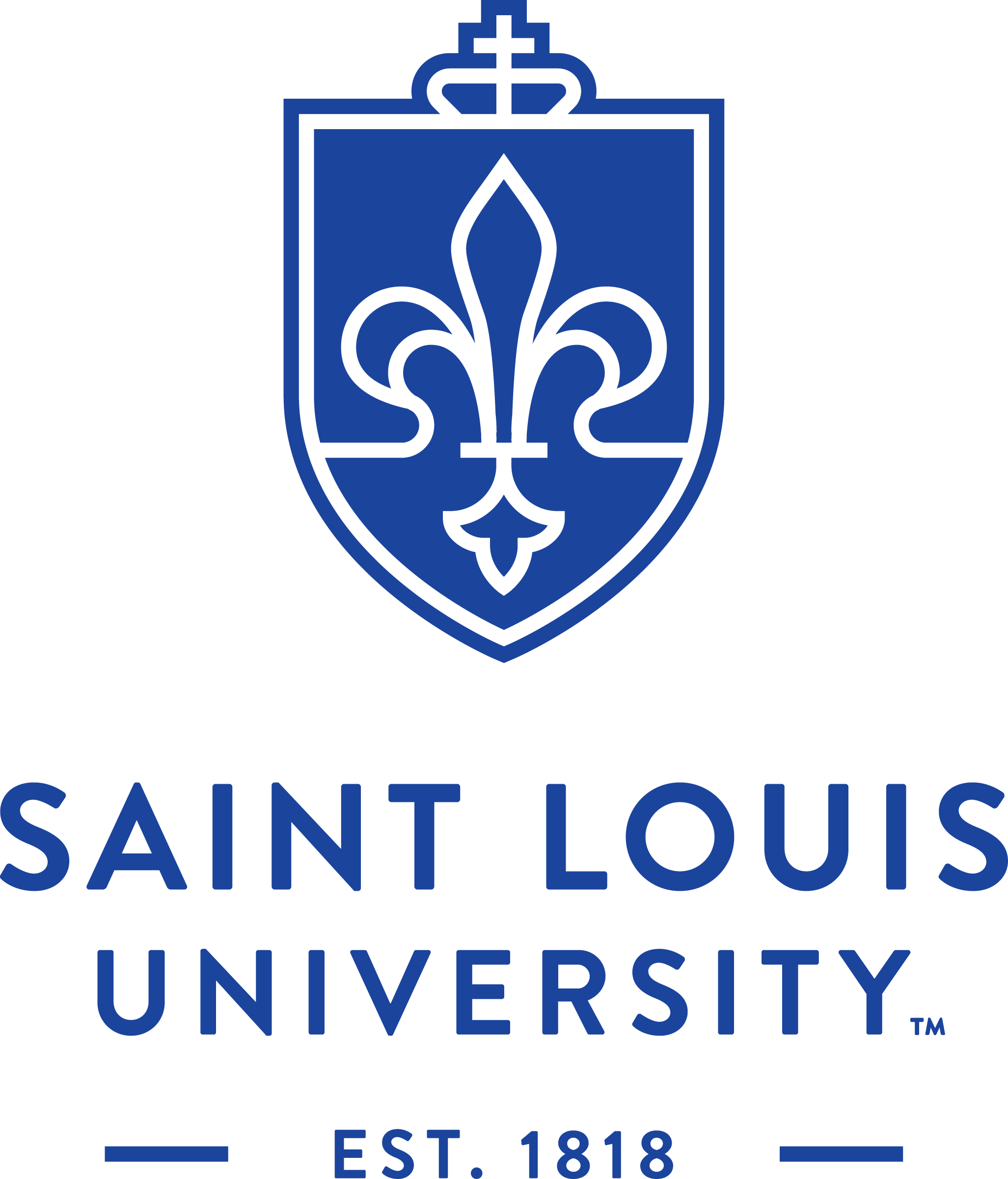Newswise — ST. LOUIS, MO (Nov. 2, 2022) — On Wednesday, Nov. 2, Saint Louis University announced the launch of the Institute for Translational Neuroscience (ITN). The new Institute brings together experts in biochemistry, chemistry, pharmacology, social justice, and community outreach under a shared research umbrella in order to study the physiology and diseases of the brain and central nervous system and thereby ease human suffering.
Under the direction of Daniela Salvemini, Ph.D., William Beaumont professor and chair of the Department of Pharmacology and Physiology at SLU, and growing out of the Henry and Amelia Nasrallah Center for Neuroscience, ITN aims to improve human health through the work of pre-clinical and clinical researchers in areas that include cognition, Alzheimer’s disease, chronic neuropathic pain, opioids, metabolism and traumatic brain injury, among others.
“We are so energized to bring together our neuroscience expertise from many different areas of campus under a shared research umbrella,” Salvemini said. “ITN will foster collaboration, enterprise and innovation by connecting our neuroscientists with their colleagues and allow us to focus our resources to support these researchers.”
Comprised of more than 100 members, including principal investigators, trainees, and staff across six schools and colleges from 23 departments at Saint Louis University, the Institute offers SLU students access and opportunity to develop skills and training in neuroscience fields, beginning at an undergraduate level. ITN will provide training in neuroscience for both undergraduate and graduate students at the University.
“We are educating the next generation of scientists who will solve some of our most difficult medical challenges,” said SLU President Fred P. Pestello, Ph.D. “They will be the ones who find new ways to heal traumatic brain injuries, maintain strong cognition as we age, and reduce the suffering caused by chronic pain.
“The Institute for Translational Neuroscience provides remarkable opportunities for SLU students – at the undergraduate and graduate level -- to contribute to research that improves the human condition.”
ITN scientists and clinicians will focus on fundamental questions relevant to the health of our society, including:
- understanding the mechanisms involved in chronic pain to develop safer and more effective non-opioid pain medications;
- understanding how age-related dementias, genetic disorders of the nervous system and injuries due to trauma or stroke cause pathology to develop new drugs to delay or prevent dementia and promote recovery from injury;
- targeting molecular pathways controlling diabetes, appetite behaviors, infertility and obesity;
- developing new ways to translate basic research discoveries into clinical practice, such as drugs, drug delivery systems and other medical devices;
- identifying new approaches to mitigate the effects of psychological stress, depression, aging and other factors on cognitive function, to improve neuro-psychiatric conditions for underserved communities.
“The Institute for Translational Neuroscience is well-positioned to improve human health and quality of life through better treatments for those suffering from neurological illnesses,” said Ken Olliff, vice president for research and partnerships at Saint Louis University. “This new Institute embodies our Jesuit, Catholic mission at SLU to serve humanity, especially the least fortunate and most vulnerable among us.”
Salvemini is an internationally recognized researcher who studies pain and opioids. Her SLU-start up BioIntervene recently raised $30 million in funding to bring forward new drugs for the treatment of pain and neuroinflammatory diseases. She envisions the Institute’s pro-innovation and education-driven approach will increase opportunities for collaboration and entrepreneurship across every area of the Institute.
“Our neuroscience researchers across campus are involved in well-funded, leading-edge research, from traumatic brain injury and stroke to metabolism and dementia and multiple sclerosis,” Salvemini said. “It’s clear that this is a crucial time to invest in multiple avenues of research and discovery, and to reap the benefits of synergistic collaboration and a unified focus.
“I believe we are poised to make great contributions to the field of neuroscience.”
In addition to fostering interdisciplinary research, attracting federal and corporate funding, and providing educational opportunities, ITN has established an Advocacy and Outreach Committee, chaired by Andrew Oberle, Executive Director of the Oberle Institute, Red and Charline McCombs Fellow for the Improvement of Trauma Care, and Health Management and Policy doctoral student in the College for Public Health and Social Justice. The committee will work to engage the neuroscience community at large and promote neuroscience through advocacy and outreach efforts.
NeuroDay
The new Institute was announced at the Henry and Amelia Nasrallah Center for Neuroscience Research Symposium, also known as “NeuroDay.” The annual event featured keynote speaker Stuart Lipton, Ph.D., from Scripps Research Institute in La Jolla, Calif, who gave a talk titled “Hidden Networks of Aberrant Protein Transnitrosylation Contribute to Synaptic Damage in Neurological Diseases.”
The event also featured lightning talks from Amal El Daibani, Ph.D., a postdoctoral fellow at Washington University in St. Louis; Rachel Schafer, a Ph.D. candidate at Saint Louis University; and Julia Lanfersieck, an undergraduate student at Saint Louis University.
More than 135 researchers attended and many shared poster presentations, and the new Institute was celebrated with a champagne toast.
Saint Louis University
Founded in 1818, Saint Louis University is one of the nation’s oldest and most prestigious Catholic institutions. Rooted in Jesuit values and its pioneering history as the first university west of the Mississippi River, SLU offers nearly 13,000 students a rigorous, transformative education of the whole person. At the core of the University’s diverse community of scholars is SLU’s service-focused mission, which challenges and prepares students to make the world a better, more just place.

